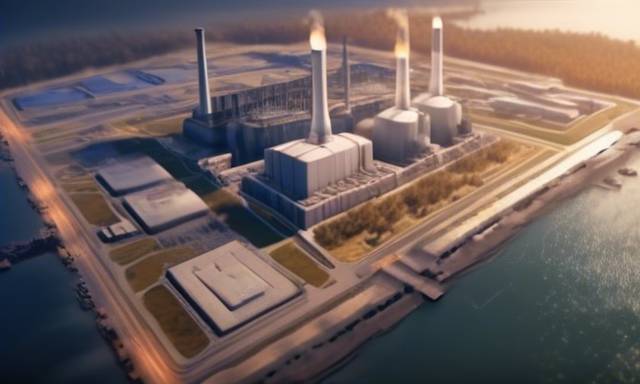🚀 Overview of Current Nuclear Energy Trends
This year, a distinct pivot towards nuclear energy is evident, especially among major tech firms seeking to power their expansive needs sustainably. The growing investment in nuclear power reflects a broader strategy to meet energy demands while focusing on decarbonization efforts. This trend highlights an ongoing exploration in the energy landscape with significant implications for both the tech industry and the environment.
⚡ Tech Giants Turn to Nuclear Energy
This year, several technology companies are significantly increasing their investments in nuclear energy. One notable instance is Amazon’s AWS, which in March announced a commitment of $650 million towards a nuclear-powered data center campus. This aligns with a broader trend where tech companies are recognizing the advantages of nuclear energy as a reliable and low-carbon power source.
Why are companies looking to nuclear energy?
- Sustainable Energy Needs:
- As companies strive for greener operations, nuclear power presents a viable alternative.
- Reliability:
- Nuclear plants can offer continuous energy, crucial for data centers operating around the clock.
🌱 Interest in Small Modular Reactors (SMRs)
The focus is also shifting towards small modular reactors (SMRs). These reactors are designed to be compact and more straightforward to deploy, representing a potentially crucial technology for the future.
However, it’s essential to note:
- Regulatory Hurdles:
- SMRs are still in early development and have yet to receive regulatory approvals.
- Due to these challenges, companies are actively searching for established nuclear energy sources instead.
🕒 Future Developments at Constellation Energy
Excitement surrounds Constellation Energy as it anticipates the reactivation of the Three Mile Island reactor by 2028. This development marks a significant milestone for nuclear energy in the U.S. after the infamous partial meltdown incident in 1979.
- Historical Context:
- The Three Mile Island incident caused widespread fear regarding the safety of nuclear energy and temporarily halted its expansion.
- The event has been described by the Nuclear Regulatory Commission as the “most serious accident in US commercial nuclear power plant operating history,” though it resulted in no detected health effects on the surrounding community.
🌍 A Commitment to Decarbonization
Bobby Hollis, who serves as Microsoft’s vice president of energy, remarked on the recent agreements as pivotal in Microsoft’s quest to support grid decarbonization. The company’s commitment aims for a future where carbon emissions are significantly reduced, aligning with global sustainability goals.
As companies like Microsoft and Amazon dive into nuclear power, it reflects a crucial shift in how the tech industry views energy sourcing. The collaboration with nuclear energy stakeholders indicates a proactive approach to addressing energy requirements while also meeting decarbonization targets.
🌌 Looking Forward: The Energy Future
The current trend towards nuclear energy among major corporations symbolizes a broader commitment to sustainable energy solutions. As challenges related to climate change and energy demands increase, the exploration of nuclear technology becomes increasingly vital. The evolving relationship between technology companies and nuclear energy could reshape the future of energy sourcing, paving the way for enhanced safety regulations and innovative energy solutions.
In summary, this year displays a clear trend towards embracing nuclear energy as a sustainable option for powering tech’s vast demands. As corporations navigate the complexities of regulatory landscapes and public perception, the focus on clean, reliable energy will remain paramount in guiding future developments.





 By
By
 By
By
 By
By

 By
By
 By
By